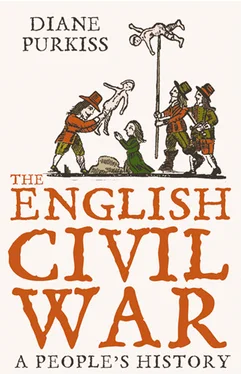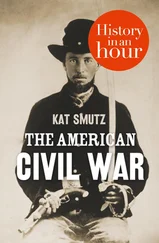Historians have tended to see Charles’s other big moneyspinner as significantly more controversial. This was the so-called Ship Money. Ship Money was a hangover from the days when the English navy was a dignified name for a bunch of privateers. The king would conscript ships that were owned by nobles or gentlemen for the duration of a particular campaign, and then give them back, along with any plunder or any valuable prisoners, at the end of the campaign in question. Because of revolutions in ship design, such privately-owned ships no longer made for a powerful navy by the 1630s, so Charles began to fear that the French and Dutch would gain control of the English Channel and the North Sea. He could have done the orthodox thing, called Parliament to pass legislation authorizing a tax to finance the navy. Instead, he twisted the medieval system into a means of financing a standing, professional fleet.
Popular notions of the Civil War give this tax much prominence, as the tyrannical extraction of monies without ‘representation’, as the American revolutionaries were to put it nearly one hundred and fifty years later. When the payments were first demanded, the nation grumbled a bit – taxes are never popular – but it paid up. Much of the discontent was about the unevenness of methods of assessment; in some areas, quite different standards were used to assess near neighbours, and this was just as popular as one might expect. But until 1638 returns hovered around the 90% mark. As time went on the mutterings did increase in volume, as it dawned on people that this occasional levy had somehow become a permanent seasonal item, coming round as regularly as Christmas. But for most of the 1630s, the nation grumbled but it paid the tax.
A Buckinghamshire gentleman called John Hampden sought to change this state of discontent into something more substantial. He was the son of an outstandingly godly man, whose will had roundly announced, ‘I know my soul to be sanctified.’ This holy, inspirational figure died when John was only a toddler, and his mother harboured political ambitions for him. The family was not a great one, but was solidly prosperous. John Hampden was soon drawn into a political circle that became immensely powerful in its criticism of Charles’s policies. He had been very active in the 1628 Parliament, collaborating with John Pym, and in the key debate of 5 June 1628, he made a speech that a contemporary summarized as follows:
Here is [firstly], an innovation of religion suspected; is it not high time to take it to heart and acquaint his Majesty? Secondly, alteration of government; can you forbear when it goes no less than the subversion of the whole state? Thirdly, hemmed in with enemies; is it now a time to be silent, and not to show to his Majesty that a man that has so much power uses none of it to help us? If he be no papist, papists are friends and kindred to him.
This speech may have been the reason that the king chose to try Hampden of all the Ship Money refusers, rather than the godly peer Lord Saye and Sele, who had also been noisily refusing to pay in the hope of bringing matters to a head. Hampden was determined to secure a ruling that called the king’s taxation into question. He deliberately failed to pay just one pound of what he owed, meekly anteing up otherwise. The judges treated Hampden’s case with a procedure reserved for the most significant disputes. Instead of being heard in the Court of Exchequer, normally responsible for collecting revenues, it was referred to the Court of Exchequer Chamber, a special body dating from 1585, in which all twelve judges in England took part, and the Court of Exchequer was to follow the advice it received from a simple majority of the twelve. The trial began in November 1637. On Hampden’s side the case was argued by a member of the group critical of the king, the Earl of Bedford’s client Oliver St John. St John was an obscure young lawyer who was to make his name out of the case, just as Hampden did. He argued not that the king had no power to command his subjects to provide a ship, but that he could only exercise this power in an emergency, such as the invasion of the realm. Because no such emergency existed at the time the king called for the money, he was required to call Parliament to levy it as a tax; hence Ship Money was an unparliamentary tax. The king’s solicitor and representative Sir Edward Littleton replied for the Crown, arguing that the circumstances had not permitted the time-consuming summoning of Parliament. Hampden’s second lawyer, Robert Holborne, replied, and in his submission the fundamental issue was carefully stated: ‘by the fundamental laws of England, the king cannot, out of parliament, charge the subject – no, not for the common good unless in special cases’, even if he thought the danger was imminent. The subject’s right to his property occluded the king’s right to decide that danger was immediate. (Unfortunately, Holborne’s delivery was marred by some kind of speech impediment.) The fat was in the fire, and the king’s representative Anthony Bankes began talking of principles instead of narrow micromanaging. He made a ringing and poetic defence of the king as ‘the first mover among these orbs of ours … the soul of this body, whose proper act is to command’. No one could criticize the king’s exercise of his powers because there was no valid place or position from which to do it.
When the judges finally considered their verdict, they had a complex body of issues to address. Four of them made strong claims for the prerogative, following the lead given by Bankes. Two took a firm stand against any such claims, and one of them – Croke – argued flatly that only Parliament could allow the king to charge a subject. But the others stuck doggedly to the legal technicalities and tried to close their eyes to the wider issues, debating whether the king could act alone if he merely apprehended national danger, and whether he had used due means. This last point was really about whether Ship Money was a tax or a form of military service; none of the judges was very sure what to decide, but eventually two key judges said that since Hampden was being tried for unpaid debt then he could not be seen as required to provide a service, and they ruled against the king. This led them to decide for Hampden. The eventual result was that the king won, but with a narrow majority; because of divisions among the judges, bystanders could not even agree on what, exactly, the majority was, but many thought it just seven over five. The nation had been following the case so passionately that curious bystanders couldn’t get into the court even by rising at dawn. The case turned Hampden into a hero; it might have been better for Charles if he had lost, since winning made him seem more of a tyrant. From then on, more people began to refuse to pay Ship Money.
But the hearing did nothing directly to unseat Charles. It gave a brief voice to resentment, but resentment is not revolution. The main result was that for the sheriffs and constables forced to collect trifling sums such as a penny from the poorest men, life became nearly unbearable. Administrative nuisances, however, did not threaten the regime in and of themselves. There was no chance of personal rule being truly disturbed by tax protests. The sense of grievance was confined to a small minority; but it was an articulate minority with good connections, increasingly an organized minority, drawn from exactly the class the House of Commons existed to represent. It was becoming obvious that if Charles ever did call Parliament, he could expect trouble from it.
Personal rule was not, however, sunk solely by finance and taxes, but by the fact that the king made another, larger group of enemies. Or rather, this second group of enemies were made for him by his Archbishop of Canterbury William Laud and his queen, Henrietta Maria. Again, these enemies probably never amounted to a majority of the nation. But they were exceptionally motivated, as religious minorities are apt to be, articulate, superb at using the printing press to spread their ideas, and they increasingly overlapped with the first group, the erstwhile MPs. They were godly Protestants who feared popery; they ranged from sectarians who wanted complete reform to Presbyterians who would have no bishops, to conservatives who supported the Anglican Church of Elizabethan England.
Читать дальше












